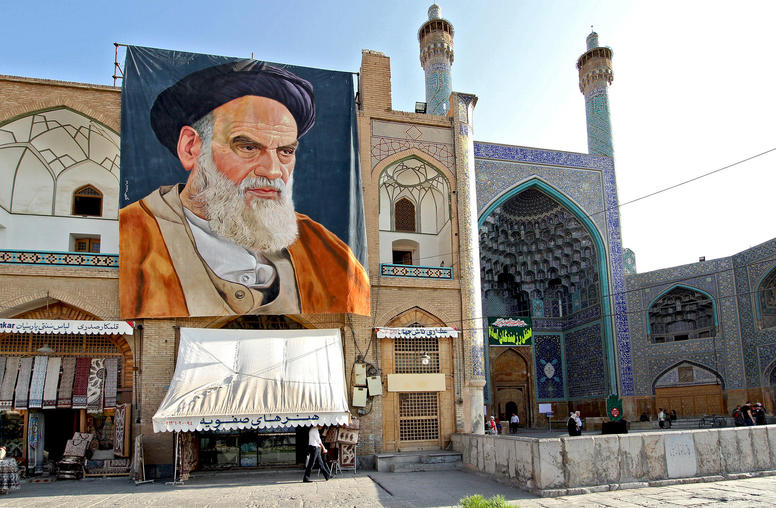 Iran
Iran
Iran has been a conundrum since its 1979 revolution. It stunned the world by introducing Islam as a form of modern governance, and rattled the region by exporting its zealous ideology. It supported militant allies and challenged international norms. For decades, dealing with the Islamic Republic was complicated by internal repression, menacing rhetoric, and defiance over its nuclear program. USIP conducts research and policy analysis on Iran, and Institute experts regularly brief Congressional staff and U.S. officials.
Learn more in USIP’s fact sheet on The Current Situation in Iran. For a comprehensive website on Iran providing timely analysis by American and Iranian scholars, see The Iran Primer, hosted by USIP.
Iran Timeline: Since the 1979 Revolution
Featured Publications

Robin Wright on What to Expect from Iran’s New President
The election of reformist candidate Masoud Pezeshkian as Iran’s new president dealt a “stunning blow in many ways to the hardliners,” says USIP’s Robin Wright. However, “the hardliners still have control of the legislature and the judiciary, and they can create havoc for the new president” and his agenda.

What You Need to Know About Iran’s Election and New President
In a clear challenge to regime hardliners, Masoud Pezeshkian, a reformist and cardiac surgeon, won Iran’s snap presidential election on July 5. The elections were called after President Ebrahim Raisi died in a helicopter crash on May 19. The runoff had been considered a tight race, but Pezeshkian won decisively with almost three million more votes than Saeed Jalili, a hardliner and former nuclear negotiator. Due to take office in August, Pezeshkian, a former deputy speaker of parliament and health minister, will take power as Iran’s government faces legitimacy challenges amid an economic crisis.

What Does Further Expansion Mean for the Shanghai Cooperation Organization?
Last week, foreign ministers from member-states of the Shanghai Cooperation Organization (SCO) gathered in Astana, Kazakhstan. The nine-member SCO — made up of China, India, Russia, Pakistan, Iran, Kazakhstan, Kyrgyzstan, Tajikistan and Uzbekistan — represents one of the largest regional organizations in the world. And with the SCO’s annual heads-of-state summit slated for early July, the ministers’ meeting offers an important glimpse into the group’s priorities going forward. USIP’s Bates Gill and Carla Freeman examine how regional security made its way to the top of the agenda, China’s evolving role in Central Asia and why SCO expansion has led to frustrations among member states.
Current Projects

The Iran Primer
In 2010, USIP and the Woodrow Wilson Center launched “The Iran Primer”—an original book and regularly updated website—to provide resources and education about Iran, which has been one of the thorniest foreign policy issues for the United States since 1979. The website continues to cover Iran’s domestic politics and foreign relations, the economy, the military, its nuclear and missile programs, and U.S. policy. The project’s goal is to help develop a better understanding of the challenges Iran poses and reduce the likelihood of violent conflict. Featuring book chapters and articles by more than 80 leading experts from 20 think tanks, eight universities, and six U.S. administrations, it has become the world’s most comprehensive source for data and analysis on the Islamic Republic of Iran.